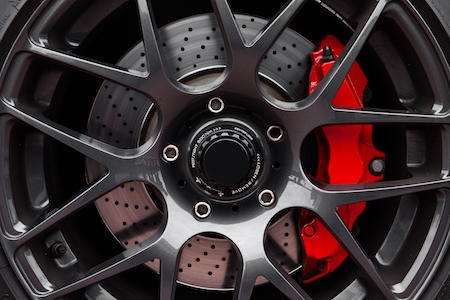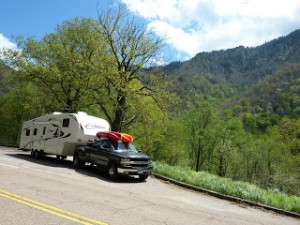Ah, a new car smell. Just saying it brings thoughts to mind.
How would you describe it? While it may be difficult to put into words, what you might not know is all the time and energy put into creating it. Yes, people really do pay attention to the way a new car smells.
While you can argue how natural those smells really are, the good news is they fade away. Drive it around for a short time, and your car will no longer smell. (At least a new car smell. If you leave a gym bag behind the seat for too long, all bets are off.)
But what about when you do notice something out of the ordinary? A smell that you can’t quite put your finger on, but you know it shouldn’t be there?
There’s nothing like the smell of burning brakes. Any time you get a whiff of a burning smell while driving your car, it’s cause for concern. Safety is your top concern.
Pull over. Assess the problem.
Depending on what’s causing the smell and what you were doing when the smell first started, different courses of action can be needed.
You have new brakes
When was the last time you had your brakes serviced? When were your brakes last replaced? If you have new parts on your braking system, it could be causing the burning smell. And that’s okay.
New brake pads are covered in resin. As your brake pads adjust and settle into the braking system, the material starts to burn off. This smell is a sign your brake system is working, getting stronger each time you work them.
 This break-in period is different for every vehicle, for every set of brakes. With some, you may not notice it at all. With others, it can linger for days.
This break-in period is different for every vehicle, for every set of brakes. With some, you may not notice it at all. With others, it can linger for days.
Give it a few days. You should start to sense the scent disappearing. If it’s still strong days later, bring it back in and one of our mechanics will check it out.
Your parking brake may be engaged
The parking brake is a system that some drivers use all the time, others, not so much. If you fall into the “once in a while” group, you might accidentally leave it engaged.
If you notice a burning smell soon after you start driving, check to ensure your parking brake isn’t engaged. The friction caused by driving while the parking brake is on can overheat over time, eventually causing damage.
Of course, the burning smell is only part of what you might sense. Other indications include trouble accelerating, a squealing noise, or even the sound of grinding. On some vehicles, you might even have a light emit on your dashboard panel.
Double check that the parking brake is off, to rule this out as a possible cause of the burning smell.
Your brakes are overheating
The third and most serious of potential problems is if your brakes are overheating.
Every time you use the brakes on your vehicle, they work by creating friction to slow down or come to a stop. While brake pads are designed to take normal wear, if you drive aggressively or overuse them, it can lead to your brakes overheating.
We see it quite regularly because of the Rocky Mountains. If you head up into the hills regularly, it can happen if you ride the brakes coming back down. Friction causes heat. By leaving the brake pads engaged for minutes at a time, the heat builds to a point where it overheats. That’s when the burning smell starts. Some people say it smells like carpet burning. In any case, it’s a scent you’ll pick up on immediately, and one you should pay attention to for safety.
The smell might be the first indication, but there are usually more. You may notice the brake pedal feeling a little spongy when you press down on it. You might notice a stream of smoke coming from under the car.
Your first course of action is to get to safety and stop. Give your brakes a chance to cool down while you consider your next actions.
How to avoid overheating
Especially here in Colorado, it’s important to have other ways to control your vehicle.
First, drive cautiously, not aggressively, leaving plenty of space all around you. If you’re not following close behind another car, you’ll have more opportunity to apply light pressure instead of pouncing on the brake pedal. It’ll also prevent you from riding the brakes, using them consistently throughout your drive.
Next, try downshifting instead. Even automatic engines have multiple gears for this reason. Instead of riding the brakes, especially coming down a steep hill, downshift and let the engine do the work instead.
Finally, have a mechanic as a friend. If you schedule regular checkups for your vehicle, you’ll stay on top of potential problems. You’ll learn if your brakes are wearing down, or discover how much tread is left on your tires. You’ll take the guesswork out of staying on top of what work needs to be done to your car.
Is it all brake pads? Can it be just one?
It’s also important to keep in mind that brake pads can sometimes wear at different levels. Your front end and read brake pads naturally will wear differently.
Even then, as your vehicle is moving forward, this momentum tends to put more strain on the front brakes. This often causes them to wear quicker than the rear brakes.
However, you’ll sometimes find brakes wearing on one side more than the other.
It’s the brake caliper’s job to push brake pads against the rotors. This is what creates the friction, causing your vehicle to stop. If the caliper sticks, meaning it stays pressed against the rotor, it will wear faster than usual.
Sometimes rotors wear unevenly, which is known as disc thickness variation. It can wear due to sticking calipers, or dirt getting trapped between the pad and the rotor. Pouncing on the brake pedal frequently can also cause a problem.
It might even be a misalignment in the brake pads. If they bounce, or simply not installed right, it can also lead to problems.
Take action – have your brake system checked
Smells are designed to give you advance warning of a problem.
If you notice a distinct smell to alert you to burning brakes, safety is your first concern. Give us a call soon after. We can get your car in, make necessary repairs, and have you back on the road again in no time.

